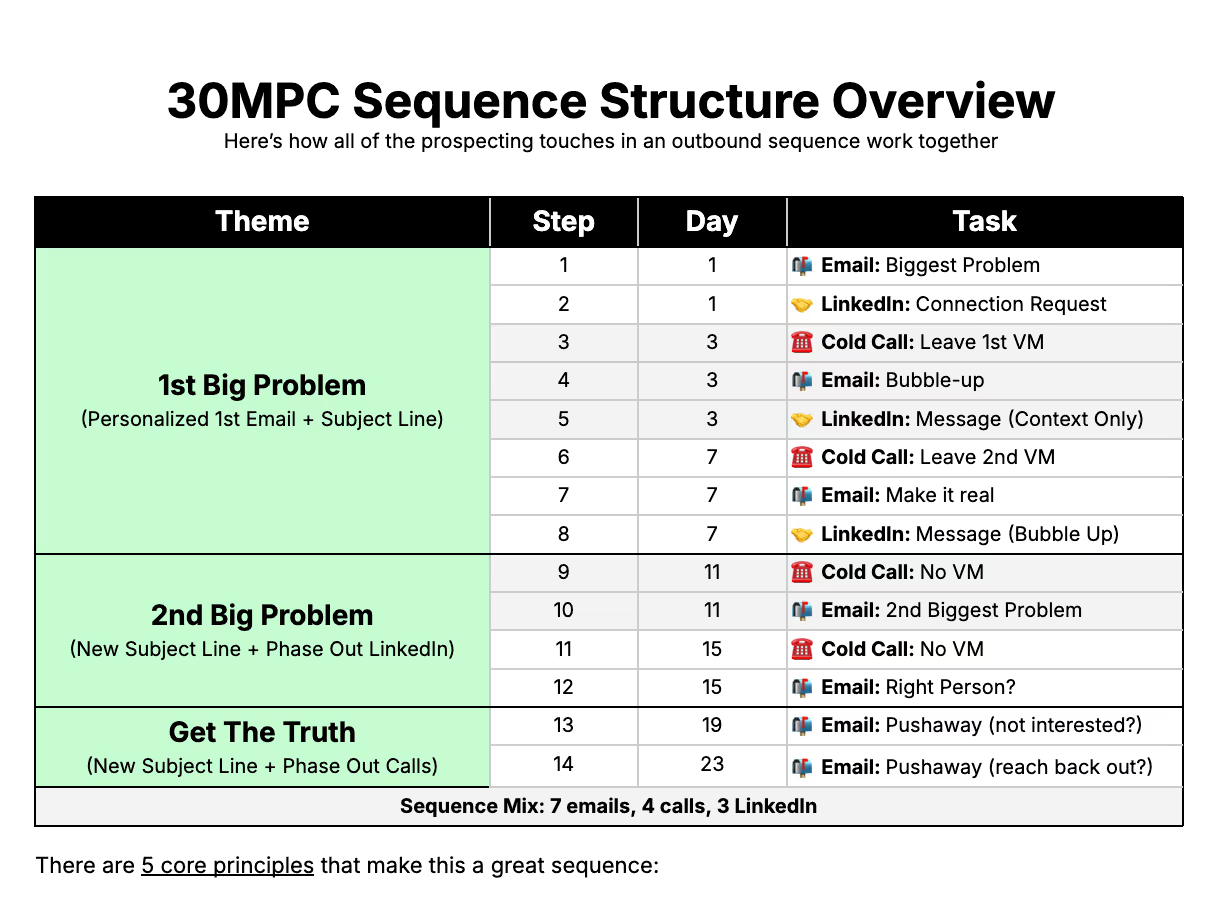Ah, the discovery call.
The discovery call is your golden ticket to connecting with potential customers and figuring out if what you're offering can actually help them out with their business goals.
So, we tapped Chase Macaione (Director of Commercial Sales @ Zip) for his golden nuggets to nailing the discovery call. Keep scrolling for the lowdown on how to make your first chat count.
What is a Discovery Call
Think of it as that initial chat you have with someone who's shown some interest in what you're selling. The goal? To suss out if they've got a problem that your business can solve and if you two are a mutual fit.
Before the call, you'll form an initial point of view, but once you're in it, your job is to validate that perspective and to uncover business level pain points - straight from the source.
The whole point of this discovery dance is to get to know your dream customer better - find out what bugs them, what they're aiming for, and if your solution is a fit for their needs.
Importance of Discovery Calls
Understanding their needs
A discovery call helps you uncover and understand business level challenges, allowing you to speak to how your solution may help.
This allows you to move forward with the deal knowing how to position your product.
Forming relationships
A discovery call is all about having a conversation. Active listening shows you not only want to understand their pain, but that you're invested in solving it.
Building credibility
By sharing your expertise and knowledge during the call, you can demonstrate that you're not a rando trying to shove an irrelevant product.
It's the first step in establishing trust with your prospects, making positive outcomes more likely.
Finding opportunities
A discovery call helps to uncover areas where your solution can help, perhaps outside of either of your initial understandings.
By diving into the prospect’s needs, you can better craft a wholistic solution to help your buyer.
Cutting to the chase
Discovery is a two way street. Your objective is to understand if you two are a mutual fit. And if not, going your separate ways before engaging in a full sales cycle.
Understanding your customer profile
Every discovery call you take, next steps or not, will help craft your narrative and build on your understanding of what an ideal customer looks like.
The more at-bats you take, the better you'll get at identifying opportunities.
Discovery Call Mindset
Before you even get into the blocking and tackling of how to run a good discovery call or discovery process, you have to understand the mindset (our favorite term) behind it.
Make it a conversation
Your discovery call must be a conversation, the last thing that you want to do is take any specific individual tactic and pull it out of your pocket on a call, because it just is awkward. Your goal is to have a conversation.
Get to business problems & impact
Way too many people get stuck in the clicks, and the spreadsheet in the process. And if you keep hearing things like it takes a lot of time, or we're on spreadsheets, or we do it this way, or we do it that way. That means you're stuck in process problems and technical problem. You need to get the technical problems, understand the situation quickly, and then get them talking about business problems and impact.
Be disarmingly blunt.
There's no reason to hide stuff like price, or where you're not so strong. We believe you should be sharing weaknesses that you have. If the customer says, Hey, we're struggling with x, and you can't help with x, you probably want to tell them. Because if they're not a good fit, it's gonna come out in the wash, eventually. You're better off just being transparent, sharing it and then moving on. If the call isn't going well, I like to call that stuff out. If Nick is giving me a bunch of one word answers, I might say, "Nick, I feel a little awkward saying this, but I feel like this call is not really going so great, am I totally off base with that?".
Discovery Call Prep Sheet & Guide
Teaching discovery is a bit like teaching someone to fish.
When you're starting out, you'll want to stick to the fundamentals and really lean on having all your tools handy.
From there, more experienced sellers can put their own twist to the process, with the fundamentals always present to back them up.
This guide prep sheet & discovery guide covers every talking point and nugget of data you should have ready before, after, and during your next discovery call. You'll be equipped with the knowledge and tools to navigate these conversations effectively each and every time.
Chase Macaione's (Director of Commercial Sales @ Zip) Call Prep Sheet & Discovery Guide has 4 sections:
- Call Prep
- Note Taking Template
- Bucketed Discovery Questions
- Call Debrief
Let's jump in (link to a fillable template at the end).
How to prep for your discovery call
Purpose of call
- Ex. Understand if the prospect company has pain that aligns with Zip’s value and if that pain is enough to drive an evaluation.
- Ex. Understand who has responsibility for this pain. If pain & value align, provide enough info about Zip to demonstrate this alignment to the prospect.
Desired outcome
- Ex. Come to an agreement with the prospect on the level of alignment between Zip’s solution and their needs.
- Ex. Agree on timeline, pacing, and scheduled next steps.
Prospect Profile
- Name of Prospect
- Title
- Work History of Note other important LinkedIn details
- Alma mater
- Published posts, articles, speaking engagements?
- Previous Zip Engagement Notes
Company Profile
- What do they do? What are their differentiators? More than industry.
- FTEs and Industry
- What are they likely buying?
- Growing or shrinking? Can you tell?
- Bullets from recent news, funding, or social mentions
- Previous Zip Engagement Notes
What to capture during a discovery call
- Expectations / Things to Mention / 3-5 Discovery Questions
- Current State and Challenges
- Impacts/Negative Consequences (size of pain, $/time)
- Desired State & Positive Outcomes
- Required Capabilities
- Discussion
- Use Cases
- Objections (New/Anticipated)
- Follow Up Items
- Next Steps
What questions to ask during a discovery call
Pain Discovery
- What are your biggest challenges today personally and as an org? ➡️ What would your CXO say to the same question?
- Tell me more about that…
- Can you be more specific? Give an example.
- Why do you think that’s happening?
- Out of everything you could fix, why this?
- What have you tried to do about that? And how has that worked?
- How much do you think that has cost you?
- Who else is aware of or impacted by this issue?
- Is the organization committed to fixing it now?
- What happens if you do nothing?
General Discovery Ideas:
- Who is responsible for the sourcing/purchasing/procurement today?
- Who does AP roll up to?
- What all do you buy?
- How do you buy, what’s a typical process? ➡️ How do you buy software specifically? ➡️ Have you done it here? / What was the process and timeline?
- Who all would need to be involved in choosing an S2Pay solution?
- Is this something your company is actively looking for or has budgeted for?
Personal Discovery Ideas:
- What are your personal or professional goals for the next 12 months?
- What are you hoping to achieve by bringing on a new solution? Not just business outcomes, but why are you willing to champion a new solution here?
- (Magic Wand) What would your dream solution allow you to do that you can't do now?
- What are your biggest frustrations or challenges right now? ➡️ How does this impact your daily life or work?
- Highlight who else in their network is using Zip from LI ➡️ How has it impacted their lives? / Highlight Zip’s community and success within
How to debrief after a discovery call
- Would you trust this person to buy software if you were their boss?
- Do they have direct responsibility for or authority over the Source-to-Pay process? What part? ➡️ If not, who does? Will this person connect you with them? Have you earned the right to ask?
- Is there an active evaluation for an S2Pay solution? ➡️ If not, does it seem like there is enough pain to create an evaluation (impact/value)? Does your contact see this value yet? Is it their pain?
- Who has the authority to buy here? Does your prospect have a direct line to them, and could you (have you) earned a direct introduction? ➡️ You may never earn this right if you are two levels removed from the DM. Would you introduce a sales rep to Dave to try and get software purchased for you?
- Is the deal qualified/worth pursuing? Is your contact a Champion or the right person to work with?

















